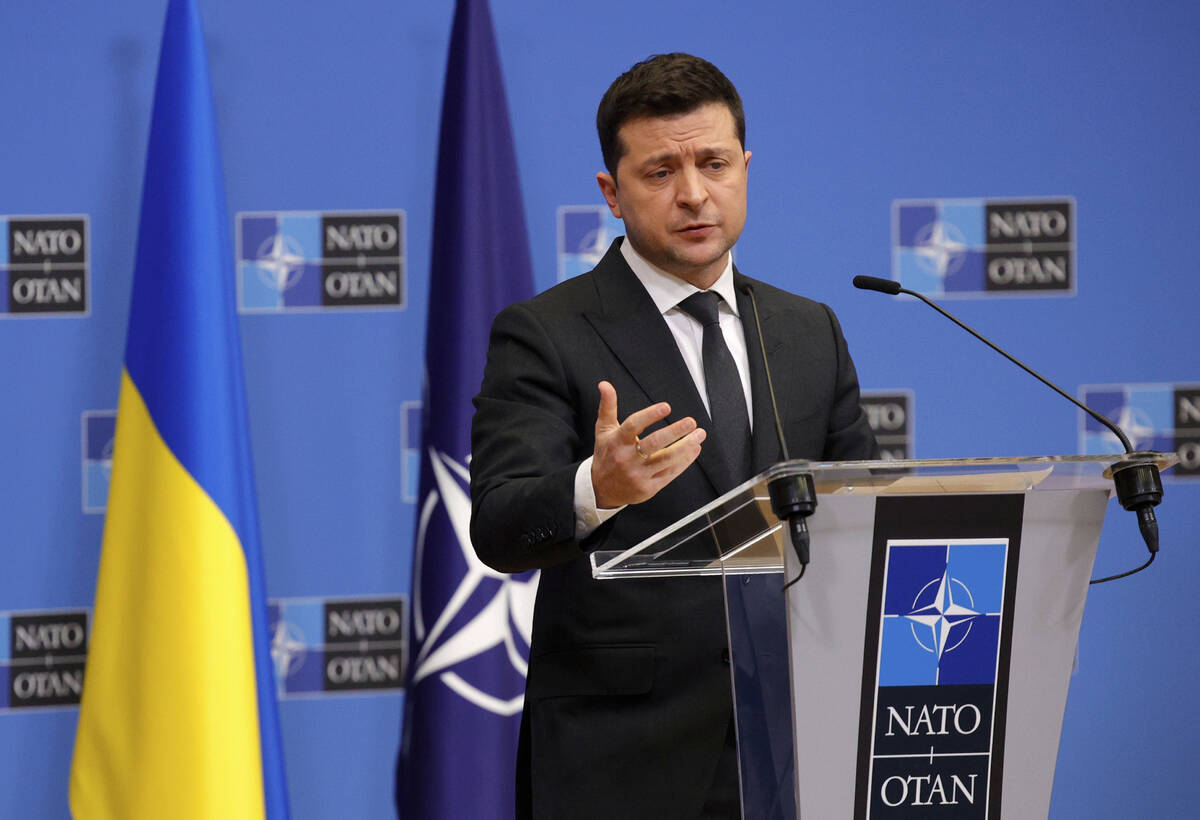VICTOR DAVIS HANSON: The Ukrainian Verdun
Ukraine has ossified into something like the modern version of the horrific Battle of Verdun, fought 108 years ago on the 1916 Western Front of World War I. That meat grinder cost France and Germany some 700,000 dead and wounded.
The nightmare ended 10 months later, after the heroic French defense stopped the final German push. But the respective armies ended up in the same position as when the battle started.
After the failed pre-emptive Russia attack on Kyiv in February 2022 and the subsequent collapsed Ukrainian six-month-long “spring” counteroffensive of spring 2023, the Ukrainian war has now similarly deadlocked.
Russia has failed to annex Ukraine. It has not expanded much beyond the occupied Crimea and Donbas.
Yet Ukraine seems unable to push back the Russians to where they started in February 2022, much less recover lost areas grabbed earlier in 2014.
Although neither side has published reliable and comprehensive dead and wounded statistics, the war has now likely reached a horrific Verdun-like total of 600,000-700,000 combined casualties.
Perhaps 10 million of Ukraine’s prewar population have fled the country. Because of the massive refugee exodus, the country may have shrunk below 35 million.
In other words, Russia now has a population seven times larger, a gross national product 10 times greater and an area more than 30 times the size of current Ukraine.
Still, if NATO and the United States can continue to arm Ukraine, it is as unlikely that Russia can annex Ukraine, even as it is doubtful that Ukraine can ever regain territory lost in 2014.
As human costs grow and the stalemate continues, talk of peace agreements arises each month.
For Ukraine and its allies, there is a growing, but private, realization that Kyiv will not recover the majority Russian-speaking Donbas and Crimea that were lost a decade ago during the inert Obama administration.
Indeed, during the Obama, Trump and Biden administrations, there was no effort either in Ukraine or among its allies to take back by force what Russia had de facto absorbed in 2014.
So what could possibly be the outlines of the armistice agreements that are increasingly being floated in the media?
Perhaps something near what Ukraine and Russia reportedly discussed a few weeks after the failed 2022 Russian invasion.
That plan would result in the institutionalization of the decadelong Russian control of the Donbas and Crimea, coupled with guarantees of Ukrainian sovereignty along the pre-February 2022 lines.
Some have further suggested that Ukraine would not become a member of NATO but would be armed to the teeth to deter or destroy likely future Russian aggressors.
If such plans were previously floated and are reportedly now revisited, what would be the advantages and downsides for both Russia and Ukraine?
Putin would have to explain — as much as any dictator does — to his people why he started a war that cost some 500,000 Russians dead and wounded, shattered his military and resulted in no additional territory but a vastly diminished Russian reputation.
His supposed upside would be that he alone finalized the absorption of the resource-rich Donbas and Crimea and stopped Ukraine from joining NATO.
Ukraine could counter that its bravery and allied aid inflicted the most grievous damage to the Russian military since World War II. Furthermore, guarantees to rebuild and rearm the now-veteran Ukrainian military could deter the 71-year-old Vladimir Putin from a repeat invasion.
Ukraine would lose its valid claims to the Donbas and Crimea. But again, apparently neither the Obama, Trump, prewar Biden administration, NATO members nor Ukraine itself ever had any agenda or ability to forcefully wrest back what Putin had stolen.
But what if there is no deal?
By the end of 2024, the current status quo may well result in a combined million dead and wounded. European nations will still talk aggressively. But increasingly, they will taper off their aid and quietly consider Ukraine out of sight, out of mind.
The emerging toxic anti-Western alliance of China, Iran and Russia will probably strengthen. Third-party opportunists such as Turkey, Vietnam, the Middle East and Southern Hemisphere nations will increasingly be drawn closer into this new axis orbit.
Measures to break the yearslong deadlock will mount, with Ukrainian calls for far more and deadlier Western weapons, even as their manpower declines. Demands will increase for strategically logical, but otherwise dangerous, escalatory attacks on Russian bases and supply depots inside Mother Russia and against the Black Sea Fleet.
Russia, in turn, will up its now-serial nuclear threats and keep targeting civilians. Deadlocked wars have a way of turning the once frightening and unimaginable into the normal and likely.
There is already crazy talk about the insertion of NATO ground troops into the war, while Russia threatens to attack other Western nations.
The only thing worse than an armistice with no clear winner or loser is an endless war with more than a million casualties.
Victor Davis Hanson is a distinguished fellow of the Center for American Greatness and a classicist and historian at Stanford’s Hoover Institution. Contact him at authorvdh@gmail.com.






















